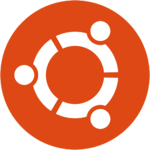Search the Community
Showing results for tags 'innovation'.
-
There is no AI without data Artificial intelligence is the most exciting technology revolution of recent years. Nvidia, Intel, AMD and others continue to produce faster and faster GPU’s enabling larger models, and higher throughput in decision making processes. Outside of the immediate AI-hype, one area still remains somewhat overlooked: AI needs data (find out more here). First and foremost, storage systems need to provide high performance access to ever growing datasets, but more importantly they need to ensure that this data is securely stored, not just for the present, but also for the future. There are multiple different types of data used in typical AI systems: Raw and pre-processed data Training data Models Results All of this data takes time and computational effort to collect, process and output, and as such need to be protected. In some cases, like telemetry data from a self-driving car, this data might never be able to be reproduced. Even after training data is used to create a model, its value is not diminished; improvements to models require consistent training data sets so that any adjustments can be fairly benchmarked. Raw, pre-processed, training and results data sets can contain personally identifiable information and as such steps need to be taken to ensure that it is stored in a secure fashion. And more than just the moral responsibility of safely storing data, there can be significant penalties associated with data breaches. Challenges with securely storing AI data We covered many of the risks associated with securely storing data in this blog post. The same risks apply in an AI setting as well. Afterall machine learning is another application that consumes storage resources, albeit sometimes at a much larger scale. AI use cases are relatively new, however the majority of modern storage systems, including the open source solutions like Ceph, have mature features that can be used to mitigate these risks. Physical theft thwarted by data at rest encryption Any disk used in a storage system could theoretically be lost due to theft, or when returned for warranty replacement after a failure event. By using at rest encryption, every byte of data stored on a disk, spinning media, or flash, is useless without the cryptographic keys needed to unencrypt the data. Thus protecting sensitive data, or proprietary models created after hours or even days of processing. Strict access control to keep out uninvited guests A key tenet of any system design is ensuring that users (real people, or headless accounts) have access only to the resources they need, and that at any time that access can easily be removed. Storage systems like Ceph use both their own access control mechanisms and also integrate with centralised auth systems like LDAP to allow easy access control. Eavesdropping defeated by in flight encryption There is nothing worse than someone listening into a conversation that they should not be privy to. The same thing can happen in computer networks too. By employing encryption on all network flows: client to storage, and internal storage system networks no data can be leaked to 3rd parties eavesdropping on the network. Recover from ransomware with snapshots and versioning It seems like every week another large enterprise has to disclose a ransomware event, where an unauthorised 3rd party has taken control of their systems and encrypted the data. Not only does this lead to downtime but also the possibility of having to pay a ransom for the decryption key to regain control of their systems and access to their data. AI projects often represent a significant investment of both time and resources, so having an initiative undermined by a ransomware attack could be highly damaging. Using point in time snapshots or versioning of objects can allow an organisation to revert to a previous non-encrypted state, and potentially resume operations sooner. Learn more Ceph is one storage solution that can be used to store various AI datasets, and is not only scalable to meet performance and capacity requirements, but also has a number of features to ensure data is stored securely. Find out more about how Ceph solves AI storage challenges: Find out more about Ceph here. Additional resources What is Ceph? Blog : Ceph storage for AI Webinar : AI storage with Ceph White paper – A guide to software-defined storage for enterprises Explore Canonical’s AI solutions View the full article
-
- data storage
- storage
-
(and 4 more)
Tagged with:
-
We are racing toward the finish line at KubeCon + CloudNativeCon Europe, March 19 – 22, 2024 in Paris, France. Join the Docker “pit crew” at Booth #J3 for an incredible racing experience, new product demos, and limited-edition SWAG. Meet us at our KubeCon booth, sessions, and events to learn about the latest trends in AI productivity and best practices in cloud-native development with Docker. At our KubeCon booth (#J3), we’ll show you how building in the cloud accelerates development and simplifies multi-platform builds with a side-by-side demo of Docker Build Cloud. Learn how Docker and Test Containers Cloud provide a seamless integration within the testing framework to improve the quality and speed of application delivery. It’s not all work, though — join us at the booth for our Megennis Motorsport Racing experience and try to beat the best! Take advantage of this opportunity to connect with the Docker team, learn from the experts, and contribute to the ever-evolving cloud-native landscape. Let’s shape the future of cloud-native technologies together at KubeCon! Deep dive sessions from Docker experts Is Your Image Really Distroless? — Docker software engineer Laurent Goderre will dive into the world of “distroless” Docker images on Wednesday, March 20. In this session, Goderre will explain the significance of separating build-time and run-time dependencies to enhance container security and reduce vulnerabilities. He’ll also explore strategies for configuring runtime environments without compromising security or functionality. Don’t miss this must-attend session for KubeCon attendees keen on fortifying their Docker containers. Simplified Inner and Outer Cloud Native Developer Loops — Docker Staff Community Relations Manager Oleg Šelajev and Diagrid Customer Success Engineer Alice Gibbons tackle the challenges of developer productivity in cloud-native development. On Wednesday, March 20, they will present tools and practices to bridge the gap between development and production environments, demonstrating how a unified approach can streamline workflows and boost efficiency across the board. Engage, learn, and network at these events Security Soiree: Hands-on cloud-native security workshop and party — Join Sysdig, Snyk, and Docker on March 19 for cocktails, team photos, music, prizes, and more at the Security Soiree. Listen to a compelling panel discussion led by industry experts, including Docker’s Director of Security, Risk & Trust, Rachel Taylor, followed by an evening of networking and festivities. Get tickets to secure your invitation. Docker Meetup at KubeCon: Development & data productivity in the age of AI — Join us at our meetup during KubeCon on March 21 and hear insights from Docker, Pulumi, Tailscale, and New Relic. This networking mixer at Tonton Becton Restaurant promises candid discussions on enhancing developer productivity with the latest AI and data technologies. Reserve your spot now for an evening of casual conversation, drinks, and delicious appetizers. See you March 19 – 22 at KubeCon + CloudNativeCon Europe We look forward to seeing you in Paris — safe travels and prepare for an unforgettable experience! Learn more New to Docker? Create an account. Learn about Docker Build Cloud. Subscribe to the Docker Newsletter. Read about what rolled out in Docker Desktop 4.27, including synchronized file shares, Docker Init GA, a private marketplace for extensions, Moby 25, support for Testcontainers with ECI, Docker Build Cloud, and Docker Debug Beta. View the full article
-
In this post-pandemic world, large enterprises are looking to streamline and improve business processes within a storm of marketplace constraints. Companies in asset-heavy industries such as oil and gas, energy, retail, or distribution and logistics have especially been working to reconfigure their supply chain processes to better manage inventory and operations. The focus in the […] The post ERP Modernization: How Devs Can Help Companies Innovate appeared first on DevOps.com. View the full article
-
Two mainstays drive most application migration and modernization initiatives. First, organizations are moving workloads to the cloud as an innovation catalyst. Achieving their strategic goals requires the speed, agility, reliability and advanced technical capabilities available to them in a hyperscale cloud. Second, they’re intent on ensuring the return on investment (ROI) through cost optimization, which […] View the full article
-
- finops
- cost optimization
-
(and 1 more)
Tagged with:
-
As software engineering leaders adjust to a future defined by remote and hybrid work models, they are shifting priorities in the organization of work to compensate for the lack of in-person collaboration. According to a recent study conducted by Jellyfish, the top priority for engineering leaders is ensuring that each member of their team is […] The post How Visibility Helps Devs Focus on Innovation appeared first on DevOps.com. View the full article
-
Forum Statistics
42.3k
Total Topics42.2k
Total Posts
.png.6dd3056f38e93712a18d153891e8e0fc.png.1dbd1e5f05de09e66333e631e3342b83.png.933f4dc78ef5a5d2971934bd41ead8a1.png)

